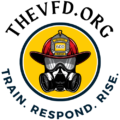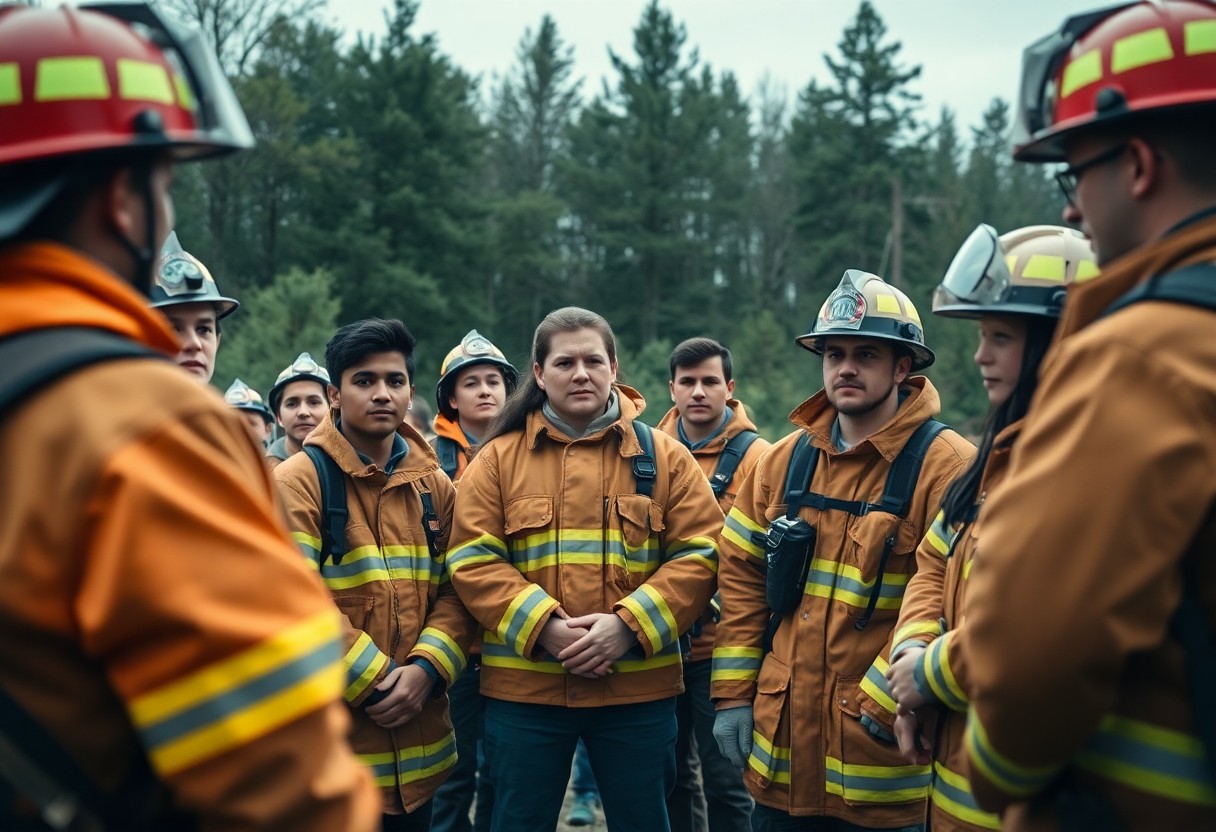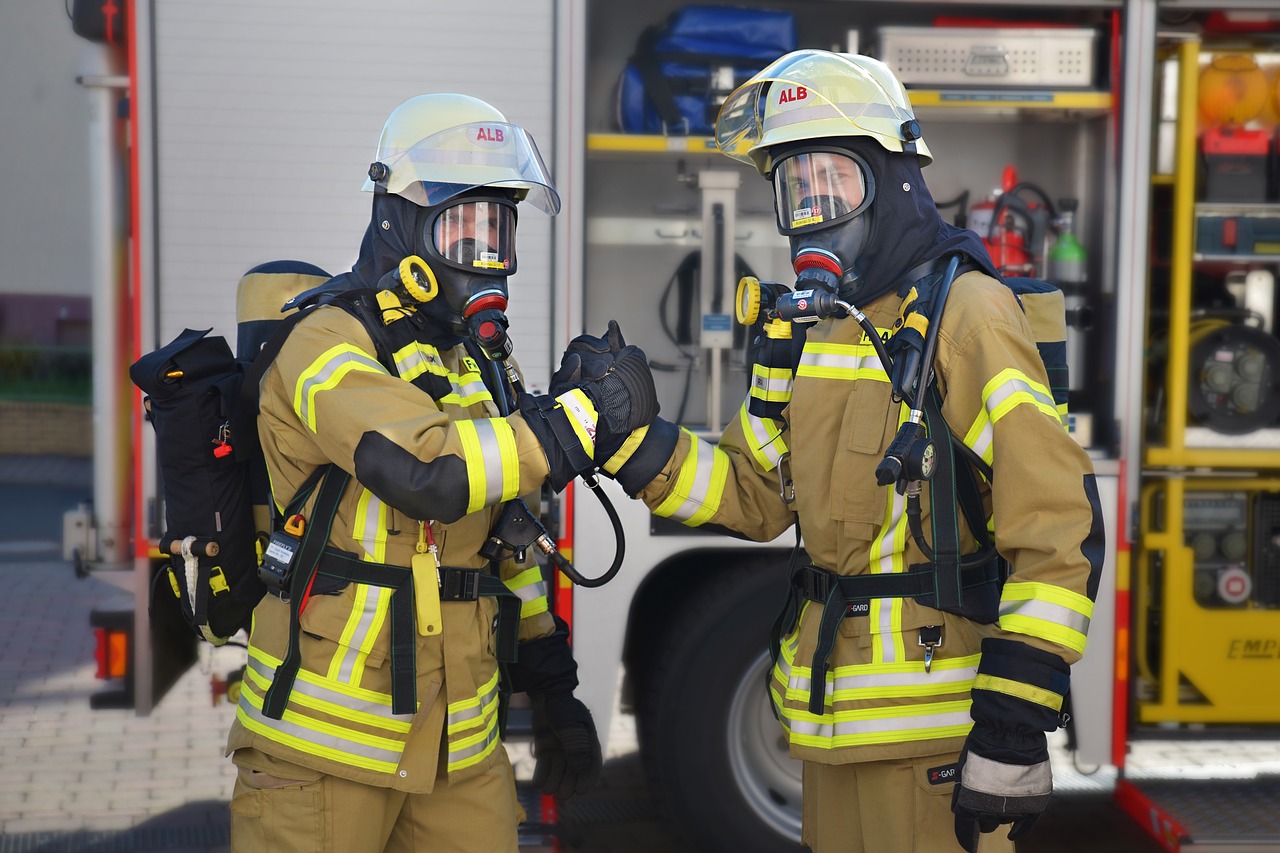Inspire the next generation of heroes by equipping young volunteer firefighters with crucial leadership skills that will not only enhance their firefighting capabilities but also prepare them for future challenges. In this post, you will discover effective strategies to cultivate confidence, communication, and teamwork among young volunteers, empowering them to take on leadership roles within your community. By providing focused training, you can create an environment that fosters positive growth and prepares these future leaders for the demands of this vital service.
Understanding Leadership
While everyone can exhibit leadership qualities, it is the conscious effort to enhance these traits that sets effective leaders apart. Leadership is not just about supervising others; it encompasses the ability to motivate, inspire, and guide individuals toward achieving common goals. As a young volunteer firefighter, understanding the essence of leadership can significantly enhance your impact on the team and the community you serve.
The Importance of Leadership Skills
One of the most vital aspects of being a leader is the ability to foster a safe and efficient environment, especially in high-pressure situations like firefighting. By honing your leadership skills, you increase your effectiveness in guiding your peers and ensuring better outcomes during emergencies.
Key Traits of Effective Leaders
Little details can make a big difference in leadership. Effective leaders often exhibit strong communication, adaptability, and emotional intelligence. These key traits empower you to connect with others, navigate challenges, and inspire confidence in your team.
Understanding the key traits of effective leaders allows you to cultivate your own leadership style. Focus on strong communication to convey clear instructions and expectations; this builds trust among your team. Adaptability is equally important; being able to adjust your approach during unforeseen circumstances can enhance team cohesion and effectiveness. Finally, developing emotional intelligence will help you manage interpersonal relationships judiciously and empathetically, ensuring a supportive environment during challenging situations.
How-To Identify Potential Leaders
Assuming you are striving to cultivate leadership skills among your young volunteer firefighters, identifying potential leaders is crucial. Look for individuals who naturally take initiative and demonstrate an interest in contributing more than just the minimum. You’ll want to observe their interactions with peers and their ability to navigate challenges with a positive attitude, as these are key indicators of future leadership potential.
Recognizing Leadership Qualities in Young Volunteers
Some crucial leadership qualities include strong communication skills, dependability, and the ability to inspire others. When you notice young volunteers who effectively articulate their ideas and motivate their peers, you are likely witnessing the first signs of leadership potential. Pay attention to how they handle conflicts and challenges, as this will also give you insight into their ability to lead under pressure.
Assessing Engagement and Initiative
Qualities that drive leadership include a proactive attitude and a genuine commitment to the team’s mission. During training exercises or community events, observe who steps up to volunteer for additional responsibilities or who shows enthusiasm for learning new skills. Individuals driven by curiosity and a desire to improve their abilities often stand out as potential leaders.
Leadership requires the ability to inspire action and ignite passion among your peers. When assessing engagement, look for signs of enthusiasm in group activities and a willingness to take on additional responsibilities. A young volunteer who actively seeks out opportunities to help others, asks insightful questions, and consistently goes beyond their assigned tasks displays valuable initiative. These are the types of individuals who are not only committed to their personal growth but also to enhancing the capabilities of your team, setting a strong foundation for leadership development.
Tips for Developing Leadership Skills
If you want to inspire young volunteer firefighters to become effective leaders, consider incorporating the following practices into your training routines:
- Encourage open communication
- Foster accountability
- Lead by example
- Provide constructive feedback
- Set clear goals
These methods will help enhance their leadership skills and promote a positive culture. After utilizing these tips, you’ll likely see a noticeable improvement in their commitment and performance.
Providing Training Opportunities
Any effective program for developing leadership involves providing ample training opportunities. By organizing workshops, simulations, and hands-on experiences, you can equip young volunteers with the tools they need to excel in high-pressure situations. These experiences not only bolster their leadership confidence but also prepare them for real-life challenges they may face as they advance in their firefighting careers.
Encouraging Team Collaboration
To nurture future leaders in your volunteer fire brigade, emphasize the importance of teamwork and collaboration. By creating an environment where members can freely express their ideas and support one another, you instill a sense of community. For instance, organizing regular team drills and discussions allows members to share their perspectives while working towards a common goal. This collaborative approach fosters skills such as communication, problem-solving, and trust among team members, ultimately enhancing their capacity to lead effectively during emergencies and build a stronger firefighting community.
Factors That Influence Leadership Growth
Once again, understanding the various factors that influence your leadership growth is vital for becoming an effective leader. Key aspects include:
- Your commitment to personal development
- The role of effective communication
- Support from peers and mentors
- Opportunities for hands-on experience
Assume that by nurturing these elements, your leadership potential will significantly expand.
Mentorship Roles
To foster your growth as a future leader, engaging in mentorship roles can provide valuable insights and guidance. Working alongside experienced firefighters will allow you to acquire crucial skills and knowledge, ultimately enhancing your leadership capabilities in real-time scenarios.
Real-Life Firefighting Experience
Even participation in real-life firefighting situations is an invaluable factor for growth. Experiencing high-pressure environments will sharpen your decision-making and critical thinking abilities, crucial traits for any leader in emergency services.
Growth in your leadership abilities is significantly influenced by direct exposure to real-life challenges. Facing dangerous situations allows you to practice problem-solving on-the-spot and gain confidence as you work within a team. The adrenaline and positive outcomes from saving lives can dramatically enhance your resolve and build your leadership presence among peers, as you navigate through both stressful scenarios and rewarding victories.
How To Create a Supportive Environment
Keep in mind that creating a supportive environment is fundamental for nurturing future leaders in your volunteer firefighting team. Start by fostering a culture where everyone feels valued and encouraged to share their ideas and concerns. Your actions should promote a sense of belonging, making it easier for young firefighters to engage, learn, and grow in their roles.
Fostering Open Communication
Fostering open communication is vital for building trust and transparency among team members. Ensure that everyone understands the importance of voicing their thoughts and opinions, as this not only strengthens relationships but also enhances teamwork. Create regular opportunities for discussions, like feedback sessions or informal check-ins, so team members feel comfortable sharing their experiences.
Recognizing Achievements
Some ways to enhance morale and motivation within your team involve recognizing achievements and commendable efforts regularly. Celebrate even the small victories to build confidence and encourage continued excellence among your young firefighters.
This process not only boosts self-esteem but also creates a culture of appreciation. When you acknowledge a young firefighter’s hard work, no matter how minor, you’re reinforcing their commitment and passion for the team. Highlighting both individual and group achievements fosters a sense of belonging and drives positive competition, encouraging others to strive for recognition as well. Make it a habit to showcase these achievements during meetings or on social media, ensuring that every effort is valued and celebrated.
Strategies for Continuous Improvement
Your leadership journey as a young volunteer firefighter is one of growth and evolution. Implementing strategies for continuous improvement is key to enhancing your skills and preparing you for future challenges. By fostering a culture of ongoing learning and reflection, you can ensure that you and your team remain adaptable, proficient, and ready to serve your community effectively.
Setting Personal Development Goals
Continuous improvement starts with setting personal development goals that align with your aspirations. Identify skills you want to enhance, and create a roadmap that includes specific, measurable, achievable, relevant, and time-bound (SMART) objectives. Regularly evaluate your progress to stay focused and motivated on your leadership journey.
Implementing Feedback Mechanisms
There’s no substitute for feedback when it comes to improving your leadership skills. Implementing robust feedback mechanisms allows you to gather insights from peers, mentors, and community members, providing you with valuable perspectives on your strengths and areas for growth.
Feedback is an vital component of personal and professional development. By actively seeking input from others, you encourage open communication and create an environment where learning from mistakes is valued. This process not only enhances your own skills but also fosters a culture of trust and transparency within your team. Establish regular feedback sessions and encourage your fellow volunteers to share their impressions on your leadership style, encouraging a professional dialogue that you can use to make informed improvements. When feedback is viewed as an opportunity rather than criticism, it positively impacts both your growth and team dynamics.
Summing up
As a reminder, fostering leadership skills in young volunteer firefighters is imperative for their development and the effectiveness of your fire department. By providing targeted training, mentorship opportunities, and hands-on experience, you cultivate their confidence and problem-solving abilities. This will not only prepare them for future roles but also instill a strong sense of community and commitment. Emphasizing the importance of collaboration and ethical decision-making will ensure that your future leaders are equipped to face challenges head-on and inspire others within the team.
FAQ
Q: What skills are crucial for young volunteer firefighters to develop in order to become effective leaders?
A: Young volunteer firefighters should focus on developing communication, teamwork, and decision-making skills. Effective communication helps in conveying important information clearly during emergencies. Teamwork fosters camaraderie and efficiency within the team, while strong decision-making abilities allow leaders to assess situations quickly and respond appropriately under pressure.
Q: How can leadership skills training improve the overall performance of a volunteer fire department?
A: Leadership skills training can enhance the performance of a volunteer fire department by cultivating a culture of accountability and motivation. As young firefighters learn to lead, they inspire their peers through example, fostering a sense of trust and collaboration. This ultimately leads to quicker and more effective responses to emergencies, as well as improved morale and retention within the department.
Q: What activities or programs can be implemented to encourage leadership development among young volunteer firefighters?
A: Various activities can be undertaken to promote leadership development, such as mentorship programs that pair experienced firefighters with younger members, workshops focused on leadership theories and practical scenarios, and hands-on training exercises that simulate emergency situations. Additionally, encouraging participation in community service projects can help develop leadership skills while also benefiting the community.



